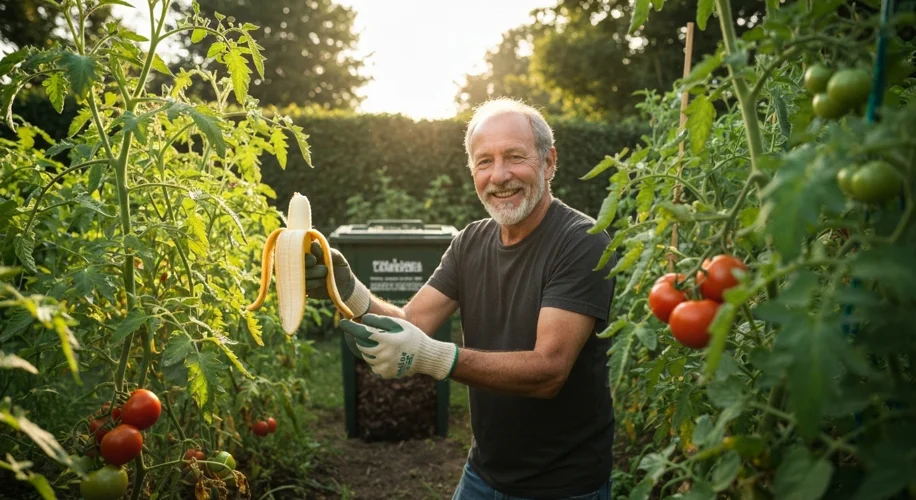Hey everyone, Elias here!
Today, I want to talk about something a little different in the garden – using ingredients you might not typically associate with planting or composting. We all know about coffee grounds and eggshells, but I’ve been experimenting with a few other household items that are surprisingly beneficial for my garden and even find their way into my cooking.
Banana Peels: More Than Just Slipping Hazards
Bananas are a staple in my kitchen, and I used to toss the peels. Now, they’re garden gold! Banana peels are packed with potassium, phosphorus, and calcium, all essential nutrients for healthy plant growth, especially for flowering and fruiting plants like tomatoes and peppers. I have a few ways I use them:
- Compost Booster: I chop them up and toss them into my compost bin. They break down relatively quickly and add a good nutrient boost.
- Direct Soil Amendment: For plants that really need a potassium kick, I’ll cut the peels into small pieces and bury them directly around the base of the plant (making sure not to overdo it and cause rot).
- “Banana Tea” Fertilizer: I soak banana peels in a jar of water for a few days. The resulting liquid is a mild, nutrient-rich fertilizer that I dilute and use for watering my plants. It’s a fantastic way to give them a gentle feed.
Coffee Grounds: My Go-To for Acidity Lovers
If you’re a coffee drinker, you know about using coffee grounds. They’re acidic, which is wonderful for plants that love a more acidic soil, like blueberries, azaleas, and hydrangeas. They also improve soil structure and drainage. I sprinkle used grounds directly onto the soil surface around these plants or mix them into my potting soil. Plus, they can help deter slugs and snails!
Eggshells: The Calcium Crusaders
Crushed eggshells are another fantastic addition. They’re a great source of calcium, which helps prevent blossom end rot in tomatoes and peppers. I thoroughly wash and dry them, then crush them into a fine powder. This powder can be mixed into the soil before planting or sprinkled around the base of susceptible plants throughout the growing season.
Epsom Salts: Not Just for Baths!
Did you know Epsom salts (magnesium sulfate) can be beneficial for your garden? Magnesium is a key component of chlorophyll, essential for photosynthesis. I typically dissolve a tablespoon of Epsom salts in a gallon of water and use it to water my plants, especially fruiting vegetables, about once a month. It can also help improve seed germination and make plants more resistant to disease.
From Garden to Table: Incorporating the Unusual
It’s not just about the garden; these ingredients can sometimes make their way into the kitchen too!
While not all of these are for direct consumption, the principle of using what you have extends to cooking as well. For instance, that leftover rosemary stem from making pesto? I’ve found that when dried, it can be a fantastic woody element for infusing oils or vinegars with a subtle herbal note, perfect for dressings or marinades.
Gardening with these ‘unusual’ ingredients has not only made my soil healthier and my plants more robust but has also reinforced my commitment to reducing waste and embracing a more circular approach to living. It’s amazing what nature provides, often right under our noses!
What are some of your favorite unconventional gardening tips? Share them in the comments below!

